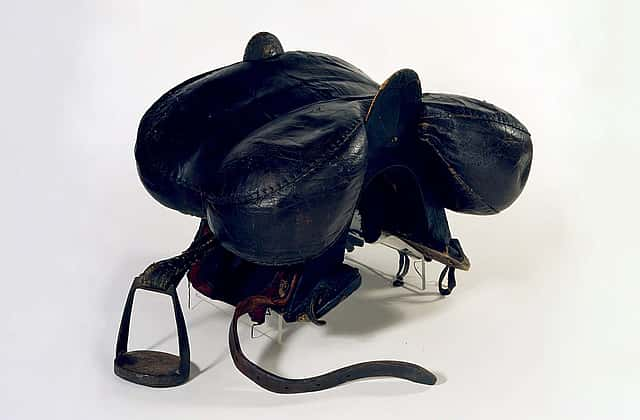
Treasures from Our West: saddle
Originally featured in Points West magazine in Summer 2012
Georgian (Cossack) saddle
In 1892, while Buffalo Bill’s Wild West was appearing in England, Buffalo Bill, wanting to add to the diversity of the cast, increased the number of international performers participating in the exhibition. Many of these performers came from countries and areas of the world that previously had not been represented. The following nationalities were among those included: Georgian trick riders—called Cossacks—from the Caucasus area of what is now the Republic of Georgia but was then part of Russia; South American Gauchos from Argentina; Mexican Vaqueros; cavalry units from Great Britain, including a group of Irish Lancers; France; and Germany. Reflecting this new diversity, the new title of the show became “Buffalo Bill’s Wild West and Congress of Rough Riders.”
The Georgians were expert riders and horsemen whose skills had been developed over the decades from generation to generation. They performed tricks from various positions: standing on top of the saddle, standing up in the stirrups, and hanging off the saddle. This saddle is a typical Georgian saddle made of cow skin and goat skin. The bulging butterfly-shaped cowhide pads are stuffed with straw. The left stirrup is cast iron and the right one is hand-carved wood. The saddle weighs approximately five pounds.
Georgian (Cossack) saddle, ca. 1900. 1.69.2410
Post 143
Written By
Nancy McClure
Nancy now does Grants & Foundations Relations for the Center of the West's Development Department, but was formerly the Content Producer for the Center's Public Relations Department, where her work included writing and updating website content, publicizing events, copy editing, working with images, and producing the e-newsletter Western Wire. Her current job is seeking and applying for funding from government grants and private foundations. In her spare time, Nancy enjoys photography, reading, flower gardening, and playing the flute.

